The stock market enthusiastically welcomed the news of the upgrade - Photo: QUANG DINH
In the early morning of October 8, FTSE Russell announced the upgrading of Vietnam's stock market to secondary emerging market. The upgrade will officially take effect from September 21, 2026, after a mid-term review in March 2026.
How big an impact will removing the frontier market label have?
Mr. Gary Harron, Head of Securities Services, HSBC Vietnam, immediately congratulated Vietnam on the occasion of achieving an important milestone - officially being upgraded from a frontier market to a secondary emerging market by index provider FTSE Russell.
Mr. Gary Harron said that this result is proof that Vietnam's rising international position can firmly overcome short-term storms.
The new status is a recognition of the joint efforts of the Government, management agencies and market participants. Especially for Vietnam, removing the "frontier market" label will have a great impact on investor behavior and confidence, change the long-term economic development trajectory of the market and reduce dependence on any single trading partner.
HSBC's global investment research department also forecasted that the potential foreign capital flow could reach 3.4 - 10.4 billion USD from active and passive investment funds after the upgrade.
Meanwhile, domestic investment and securities consulting companies said that disbursement will have a certain delay.
Speaking to Tuoi Tre Online , Ms. Ha Vo Bich Van, financial advisor at Hub Dong Hanh, a member of FIDT Investment Consulting and Asset Management Joint Stock Company, emphasized: Many investors are talking excitedly about the prospect of foreign capital flowing into the Vietnamese market if it is upgraded to an emerging market. However, if we look at it from a more realistic perspective, we will see that the picture is not that simple.
Will Vietnam's stock market diverge strongly after the upgrade news?
According to Ms. Van, first of all, the upgrade is certainly a positive signal, helping the Vietnamese stock market increase its attractiveness in the eyes of international investment funds. But Ms. Van noted that it is important to distinguish: upgrading does not mean that capital flows will be immediately disbursed. ETFs, global index funds or active funds all have their own investment processes, from portfolio review, liquidity assessment, to checking information transparency standards. Each of these steps takes time.
Moreover, not all foreign capital flows in at the same time. Some funds immediately disburse a small portion to "gain position", some wait a few quarters to observe stability, and some funds only focus on stocks that meet standards in terms of capitalization, liquidity, and governance. Therefore, capital flows will "gradually flow" rather than "flood in" as expected.
According to Vietcap Securities, after FTSE Russell upgraded it to a secondary emerging market, the Vietnamese stock market may enter a period of strong differentiation in the second half of October, when businesses' third-quarter 2025 business results are announced one after another.
The positive impact from the upgrade decision is expected to partly offset the net selling volume of about 9 billion USD by foreign investors in the 2023 - 2025 period, while attracting new capital flows estimated at 6 - 10 billion USD, according to forecasts of a number of international securities companies.
As of the end of September, the 12-month trailing P/E ratio of VN-Index reached 16 times, higher than the Philippines (10.1 times) and Thailand (14.7 times), but still lower than Indonesia's 19.6 times, showing that Vietnam's market valuation is still relatively attractive in the region.
Tuoitre.vn
Source: https://tuoitre.vn/du-bao-von-ngoai-vao-viet-nam-sau-nang-hang-co-the-len-toi-chuc-ti-usd-20251008091600673.htm


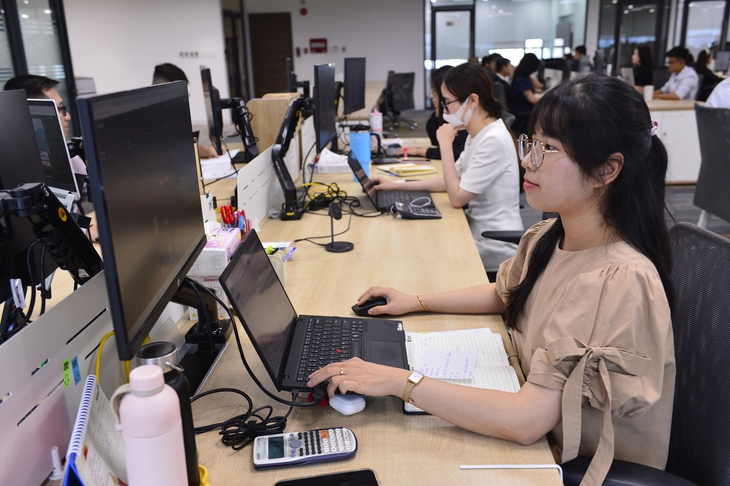
![[Photo] Prime Minister Pham Minh Chinh attends the World Congress of the International Federation of Freight Forwarders and Transport Associations - FIATA](https://vphoto.vietnam.vn/thumb/1200x675/vietnam/resource/IMAGE/2025/10/08/1759936077106_dsc-0434-jpg.webp)




![[Photo] Prime Minister Pham Minh Chinh inspects and directs the work of overcoming the consequences of floods after the storm in Thai Nguyen](https://vphoto.vietnam.vn/thumb/1200x675/vietnam/resource/IMAGE/2025/10/08/1759930075451_dsc-9441-jpg.webp)


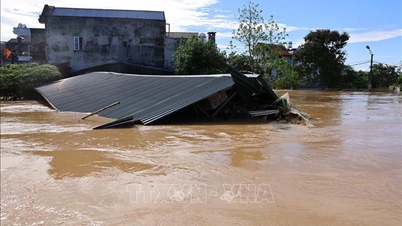

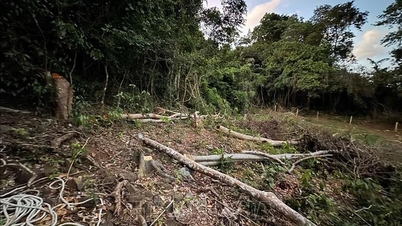






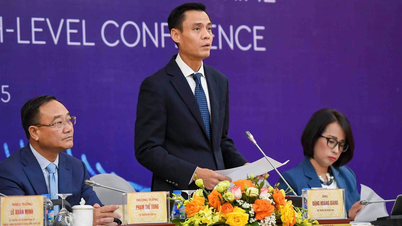




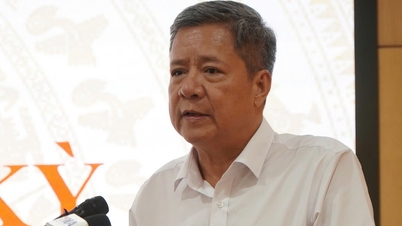
![[Photo] Closing of the 13th Conference of the 13th Party Central Committee](https://vphoto.vietnam.vn/thumb/1200x675/vietnam/resource/IMAGE/2025/10/08/1759893763535_ndo_br_a3-bnd-2504-jpg.webp)





































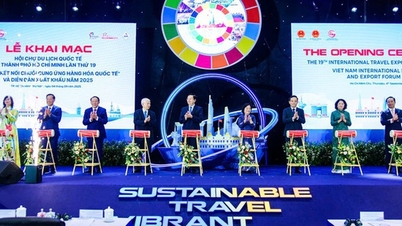










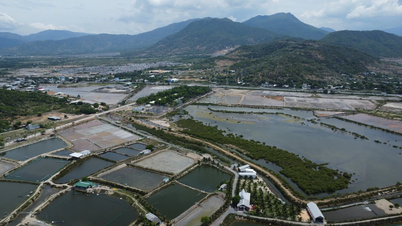


















Comment (0)